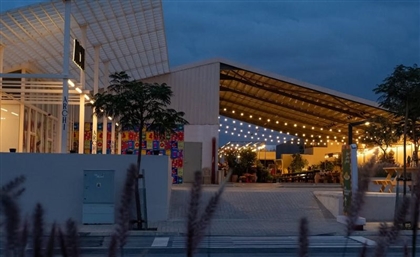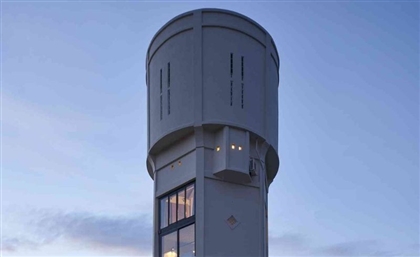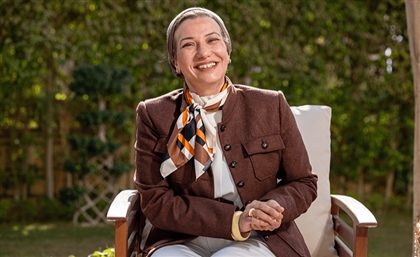Koojeh is Rewriting the Rules of Persian Dining in Riyadh
We caught up with the mastermind behind Koojeh, Ahmed Aldhubaib, to uncover its story, his Paella Pop-up past, and how he aims to redefine the Saudi fine dining scene.
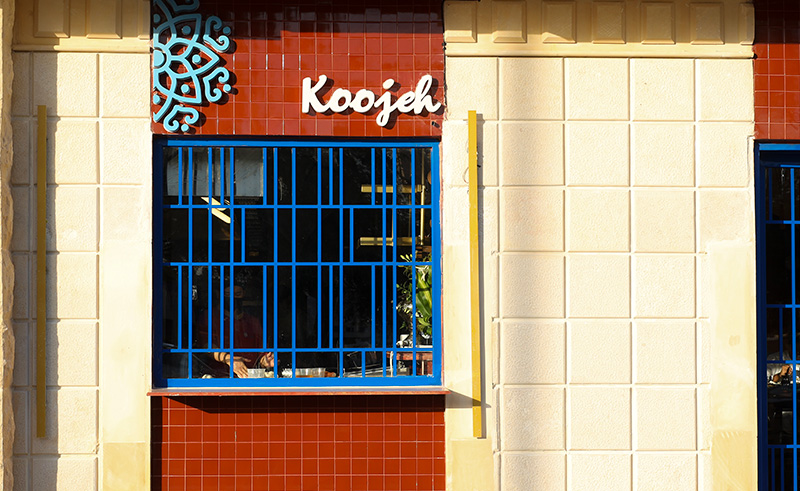
At Koojeh, a new Persian restaurant tucked into a quiet stretch of Riyadh, there’s a palpable reverence for the primal pleasures of fire, fat, and lamb. Smoke coils upward from open charcoal grills, clinging to the rafters and perfuming the space. Yet for all its historical underpinnings, Koojeh isn’t nostalgic. It plays more like a masterful remix of old flavours refracted through a local, contemporary Saudi lens.
I first stumbled across Koojeh on one of my late-night outings with two friends, former Cairene companions now firmly claimed by the Saudi corporate machine. We were on yet another nocturnal forage for a spot the algorithm hadn’t already chewed up when we found it. True to its name (which means 'alleyway' in Persian), we were greeted by a cosy interior and wooden tables decorated with vintage silverware, which felt like stepping into someone's home, or rather, a hole-in-the-wall diner within the quarters of Tehran or Shiraz.
“That word 'koojeh' represents discovery, warmth, and the charm of everyday gatherings. That’s exactly what we wanted the restaurant to feel like: intimate, rich in character, and accessible to everyone,” says the owner, Ahmed Aldhubaib, the genial, old-school chef behind the concept. He glides between busy tables, greeting diners with the history behind Persian cuisine and his family’s culinary traditions.
The first dish to land on our table was the Kubideh, the restaurant’s inspired take on a street-food staple and reportedly its most ordered item: a skewer of ground lamb, mixed only with onion and salt, grilled until it trembles under its own weight. It’s a dish that punishes shortcuts and rewards patience. “It’s frustrating how little care is given to local ingredients. Most restaurants use imported meat,” Ahmed tells us, “but we work directly with a designated group of local shepherds. We source the livestock 10 days before preparation, and ensure they’re freely grazed on a premium diet to optimise tenderness and flavour.”
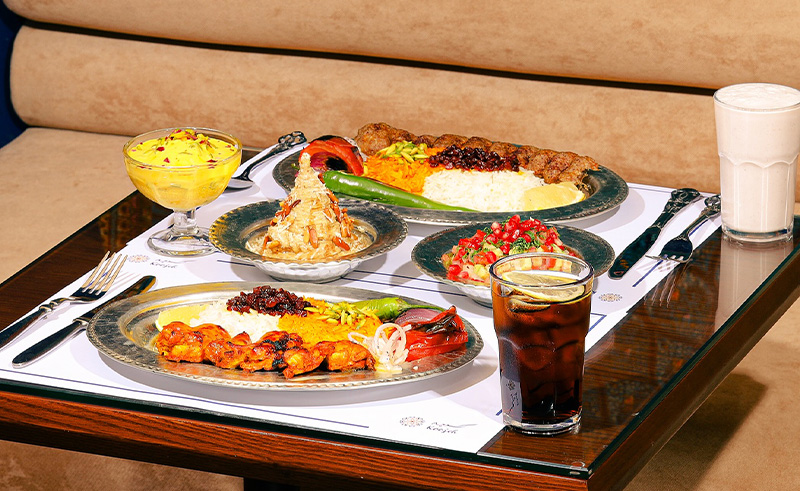
But before his restaurant debut wiry Koojeh, Aldhubaib was first known to Riyadh’s foodies through Paella pop-up, a cloud kitchen concept that was born from his family’s weekend feasts which, somewhat improbably, turned into a runaway hit. Paella went from humble farmers’ markets to national TV, and eventually securing him a recurring spot at Riyadh Season’s Boulevard World for four consecutive years.
“We’ve always cherished the moments food creates - how a well-prepared meal brings people together, sparks conversations with strangers, and builds lasting memories,” he reflects. “We’re here to tell Saudi stories through Persian food, and to prove that world-class dining can come from local roots, not imported trends.”
If the paella was theatrical - “a performance dish,” as he called it - Koojeh is something else: distilled, thoughtful, and devotional. It tells the story of his homeland and its dining culture through a Persian grill lens. “It all started with my regular weekend feasts with the family. I wanted to create a space as warm and intimate as our gatherings, somewhere intimate, rich in character, and accessible.” Aldhubaib tells SceneNowSaudi. “I was drawn to the Persian cuisine for its emphasis on simplicity, patience, and tradition. It's just a few ingredients, cooked right.”
Midway through demolishing the lamb - still trembling off the bone - another dish arrived: the Joojeh, a chicken marinated for 48 hours in iqt (a traditional dehydrated yoghurt) and musky saffron. It came charred and tender, tasting of smoke and sunshine at once, an edible chiaroscuro: deep, bright, and fleeting. I was battling demons to eat intuitively and savour it to the last bite that my investment in helping my friend decode the one-liner texts of her situationship was long forgotten.
In a country where the dining scene is mostly dominated by global franchises and Gulf-wide restaurant groups, Koojeh offers a counterpoint: a refreshing fine-dining experience that won't cost an arm and a leg. “Balancing quality and affordability was the hardest part,” Aldhubaib admits. “But we didn’t want excellence to be exclusive. If the food isn't exceptional, we won't serve it."
During one of his too many stops at our table, Aldhubaib shared with us some of the kitchen's confidential anecdotes. Since opening, Koojeh has expanded rapidly, with a second location already running and a third on the way. On any given evening, the dining room hosts a curious spectrum - government officials, food influencers, schoolteachers, and families celebrating milestones. Somehow, it has become a place for everyone.
For Koojeh's future, Aldhubaib has big dreams: regional expansion, a platform for Saudi culinary talent, and a vision to “redefine the Saudi F&B scene.” But the restaurant’s true charm lies in its modesty. Koojeh doesn’t dazzle with fire tricks or foam. Instead, it leans into something far more disarming: quiet mastery, deep sourcing, and excellent lamb.
We ended the meal with a soft, fragrant dessert - rose milk with saffron and pistachio, dusted with irtah, a rare, nearly forgotten desert herb Koojeh sources from local Saudi markets. Still, the dish that lingered longest with me was the Kubideh, and how the sneaky underlying spiciness complemented the meat in all sorts of interesting ways. But more than that, you taste precision - a vision of what Persian food in Saudi Arabia might become when filtered through memory, fire, and just a bit of salt.
- Previous Article We Tried The TikTok Viral Angel Hair Chocolate (& More)
- Next Article Cigarette Price Thresholds to Rise 12% Annually Through 2028








